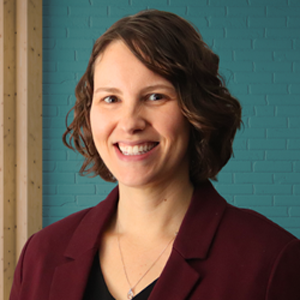On the last Sunday in February, about 700 members of the diocesan family and the wider community gathered at St. Paul, Bloor Street for the jubilee celebration of the Black heritage of the Anglican Church.
The congregation entered the worship space to the beautiful music of the Ghanaian Anglican Church Choir and the rhythms of the steel pan. The 25th anniversary service, based on the acronym ACTION (Adoration, Confession, Thanksgiving, Intercession, Offering and News), started with a colourful procession that included the choir, clergy, the entire College of Bishops and the flags of 30 nations. The theme song of the procession was, “We’ve come this far by Faith.”
After a medley of praise, dancers from the 1996 inaugural service took everyone back to that moment when St. James’ Cathedral resonated with the colourful costumes and Noel Dexter’s composition of “Enter into Jerusalem.”
The Rev. Canon Donald Butler spoke of racism, exclusion and other challenges that still beset Black people in both the Church and society, while Constance Kendall, ODT, reflected on reasons why we can still give thanks at the personal and communal levels.
These challenges and thanksgivings were brought together when the community in prayer, led by Br. Reginald Crenshaw, OHC, celebrated a pantheon of trailblazers, living and departed, in the Black community. They were remembered for their transformative contribution to the Canadian mosaic.
As an act of offering, the recently formed Black Anglicans of Canada was inaugurated and its leadership installed by Bishop Peter Fenty. The mission of the group is to seek to increase the participation, representation, empowerment and belongingness of Black people in lay and ordained leadership roles in the full life of the Church, and to develop partnerships with the wider Black community, other racialized communities and oppressed peoples.
The “News” was shared by the Rev. Canon Dr. Stephen Fields, the founding chair of the Black Anglicans Coordinating Committee, which organizes the service. Reflecting on the message of the Kingdom of God, the cross of Jesus and the work of compassion, he spoke of the mutual responsibility of Black and White people in working to eradicate all forms of exclusion and marginalization visited upon persons, whether they be Black, LGBTQ, Indigenous or differently abled. He said that Jesus’ message of the Kingdom of God is one that seeks to deconstruct all firmly entrenched and socially stratified systems of power and reconstruct a community of love where each person, community and culture is respected.
He challenged the Black community to critically understand their reality, unveil the world of oppression, and commit themselves to its transformation. “Only you can do this,” he said. “Only when we have some clarity and common understanding about ourselves will we be able to provide the kind of space into which others may enter for the good and sake of the whole Church.”
He spoke directly to the White members of the congregation, telling them that they are needed as allies, “for this is your Church as much as it is ours.” He said that just as Black people work to define themselves, their White siblings must be honest, recognize and accept that they are socialized in a system that has been built on White supremacy, a culture that positions White people and “Whiteness” as ideal. He challenged them to work to interrupt that state in which even a minimum amount of racial stress becomes intolerable, triggers a range of defensive behaviours, and limits any authentic engagement and community-building.
The service ended as the Black Anglicans Coordinating Committee recognized the contribution of several members of the community who have worked over the years to ensure its ongoing work, and thanked the bishops, their assistants and the diocese’s photographer, Michael Hudson, for their support.
In his closing remarks, Bishop Andrew Asbil reflected on the pain of racism experienced by the composer of the Negro spiritual, “Deep River,” Henry T. Burleigh, the words of which filled St. Paul’s vast edifice when it was rendered earlier in the service by Nathan Richards, a classical vocal major student at the University of Toronto. Noting the pain that still exists, and the work to be done, the bishop declared, “I’m in.”











Can I be buried from my church?